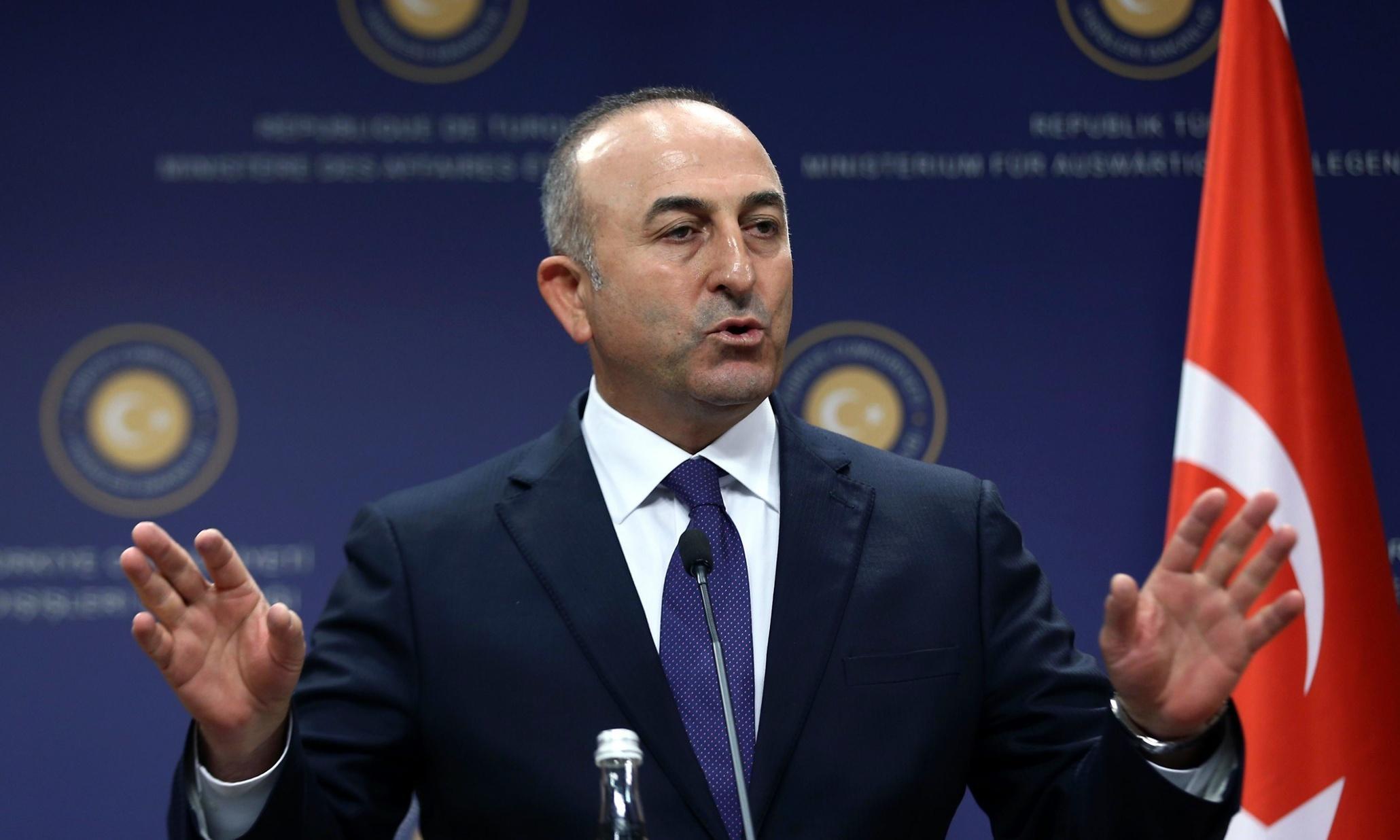
Turkey has a plan to conduct exploration activities in the eastern Mediterranean region in the near future, Foreign Minister Mevlüt Çavuşoğlu said on Feb. 4.
In an interview with the Greek daily Kathimerini, Çavuşoğlu said one of the key elements of the Turkish energy policy is to increase the use of domestic energy resources.
“It is our sovereign right to seek and explore these resources, so we plan to start drilling in the eastern Mediterranean region in the near future,” he said.
The foreign minister said the Turkish Cypriots, as co-owners of Cyprus, have an absolute right to the natural resources on the island.
“We find it unacceptable that the Greek Cypriot side insists on acting as the sole owner of the island,” he added.
The foreign minister emphasized that Turkey is determined to support the Turkish Cypriots and help them broaden their legitimate rights to the natural resources of the island, and also to protect Turkey’s rights and interests on its “continental shelf.”
Çavuşoğlu said that the efforts to reach a solution between Greek Cypriots and Turkish Cypriots failed in July 2017, when a Cyprus conference ended without any results.
“Greek Cypriots are wrong if they think Turkish Cypriots may be restricted to the status of a simple minority. That will never happen. Turkish Cypriots will never agree, and Turkey, as a guarantor of power in Cyprus, will never allow it,” he said.
Turkey-Greece relations
Speaking about Turkey-Greece relations, Çavuşoğlu called President Recep Tayyip Erdoğan’s Dec. 7 - 8, 2017 visit to Greece an “important step” in bilateral relations.
“President Erdoğan’s visit to Greece was indeed an important step in our relations. During our visit, the leaders discussed the issues in an open and sincere manner and both sides were satisfied with the visit,” he said.
“We must continue to focus on the positive agenda and expand our cooperation in a number of areas,” he said.
“We must also keep our public audiences informed about the benefits of the high-level dialogue process,” he added.
“Therefore, Greek-Turkish relations should not always be portrayed in a negative way on Greek media. The positive aspects of our relations must be highlighted and we support all the initiatives and projects which serve this purpose,” the foreign minister stressed.
When asked about the next High-Level Cooperation Council meeting, Çavuşoğlu said it is expected to take place in the Thessaloniki city of Greece in the first half of 2018.
“We look forward to the proposals from the Greek side about a specific date,” Çavuşoğlu said.
Extradition of defeated coup plotters
When asked about a Greek court’s judgment on Turkey’s extradition request for plotters of the July 15, 2016 coup attempt, Çavuşoğlu said: “The judgment of the [Greek] Supreme Court to reject the extradition request leaves the perpetrators of the coup unpunished and violates the rights of victims.”
“With the help of our Greek friends, we will continue to look for ways to bring these people to justice in Turkey,” he added.
“In this regard, our embassy in Athens recently submitted a new request for extradition to the Greek Foreign Ministry. This new pack contains new evidence and additional documents demonstrating the involvement of the eight fugitives in the July 15 [2016] coup attempt,” Çavuşoğlu noted.
The Fetullahist Terrorist Organization (FETÖ) and its U.S.-based leader Fethullah Gülen are widely believed to have orchestrated the defeated coup of July 15, 2016, which left 250 people killed and nearly 2,200 injured.
The Greek appeals court ruled in line with the prosecutors’ suggestion, denying Ankara’s extradition request on the grounds that Mehmet Doğan, one of the defeated coup plotters, has been recognized as a “political refugee” by French authorities.
Doğan was detained last November in Athens along with eight more Turkish nationals and was accused of forming and participating in a terrorist organization and possessing explosives and weapons unlawfully, among other charges.
Ankara requested the extradition of at least two of the accused. The second extradition request will be heard in court on Feb. 6.
The refusal of Greek courts to extradite who Turkey accuses of being terrorists - notably eight ex-soldiers accused of taking part in the 2016 defeated coup in Turkey - has added strains to ties between Ankara and Athens.
Ties with Russia
Speaking about Turkey’s ties with Russia, Çavuşoğlu said the “good relations” with Russia are based on the regional location of the country.
“We have a bilateral trade balance of more than $20 billion; major energy projects and strong cooperation in many other areas from tourism to construction. And between neighbors this is normal and so it should be,” he said.